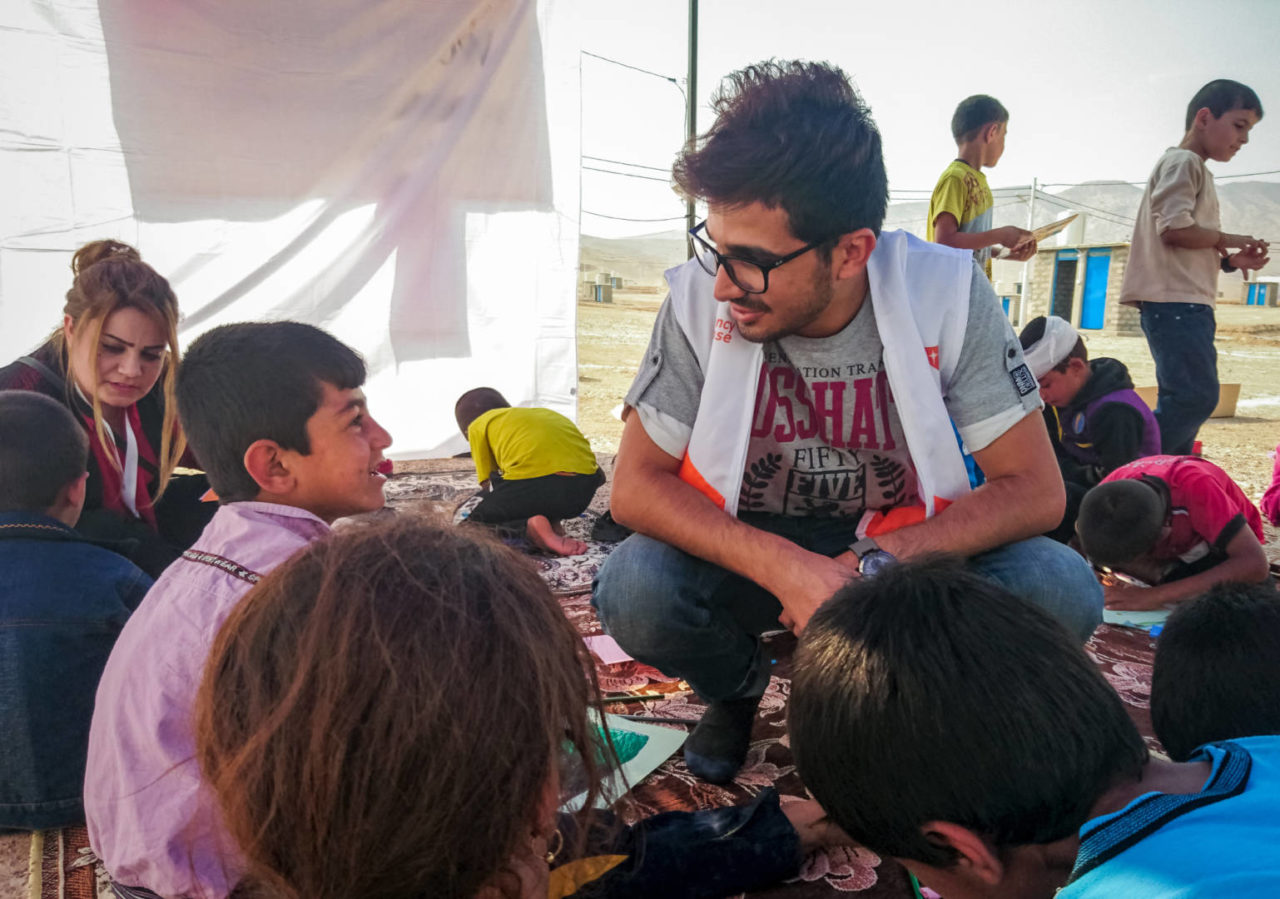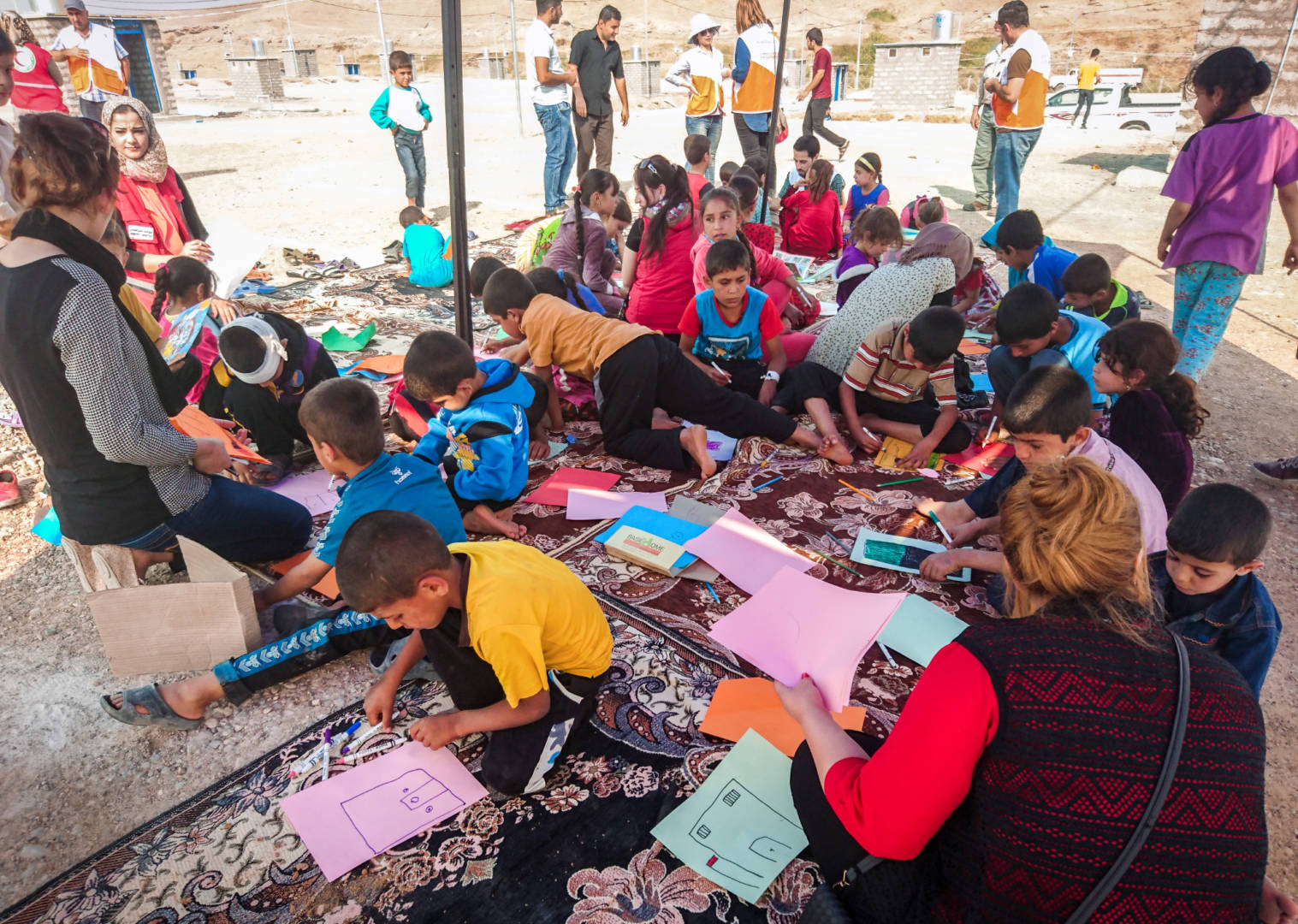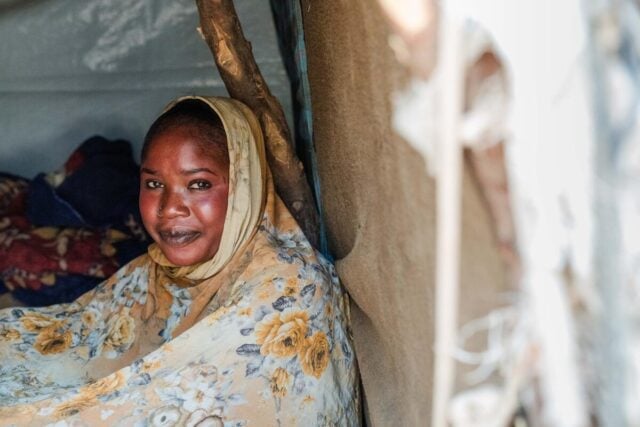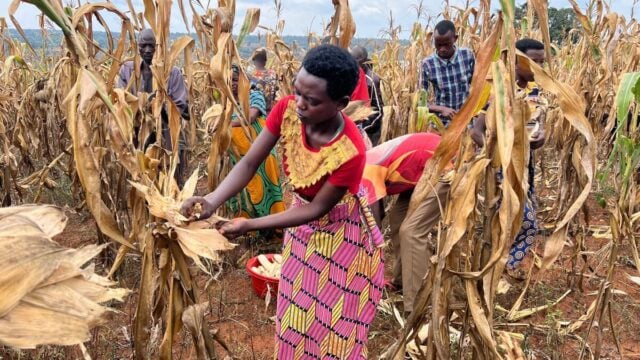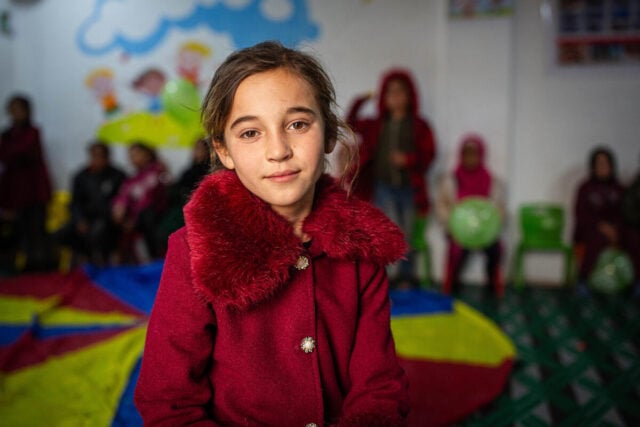Children fleeing Mosul are arriving at camps petrified, struggling to express themselves, and in some cases too terrified to speak, says World Vision staff based just outside of the city. The children and their families fled fighting in the military operation to retake Mosul.
Families report being fired at with guns and mortars as they fled. With nothing but the clothes on their backs, parents grabbed their children and ran. One family said a mother and child in their group were killed.
Two years living under brutal occupation and facing a litany of dangers while fleeing — such as land mines, snipers, and fighters — has taken a toll on children’s physical and mental health.
“Many children have been stuck in their homes while bombings, sniper fire, or chaos ruled around them. Others have witnessed the death of family members,” says Aaron Moore, World Vision’s programs manager in northern Iraq.
With care, children regain ‘a sense of hope’
World Vision’s child protection staff provide safe spaces for children to play in the newly constructed Zelican camp, just 15 miles northeast of Mosul, Iraq.
“Our Child-Friendly Spaces provide a safe place for children to come to terms with the violence they’ve seen and just take time to play as children again amidst the chaos of this conflict,” says Aaron.
World Vision is one of the first agencies to provide aid to children in the camp.
“One little boy who is five years old arrived at the camp too terrified to speak,” says Aaron. “He was not mixing with the other children; he was simply staring at them.” The boy had seen his 15-year-old brother killed when they fled.
“Thankfully, with the support of a trained World Vision psychologist, he was able to say his name by the end of the day. However, this is just the beginning of what could be years of specialist support, as children begin to rebuild their lives and regain a sense of normality.”
He says many children don’t want to play when they first come to the camps. They may begin with drawings that re-create war scenes with tanks and planes.
“However, after a few days at the Child-Friendly Space with our staff, they’re slowly beginning to regain confidence and a sense of hope for the future,” says Aaron.
